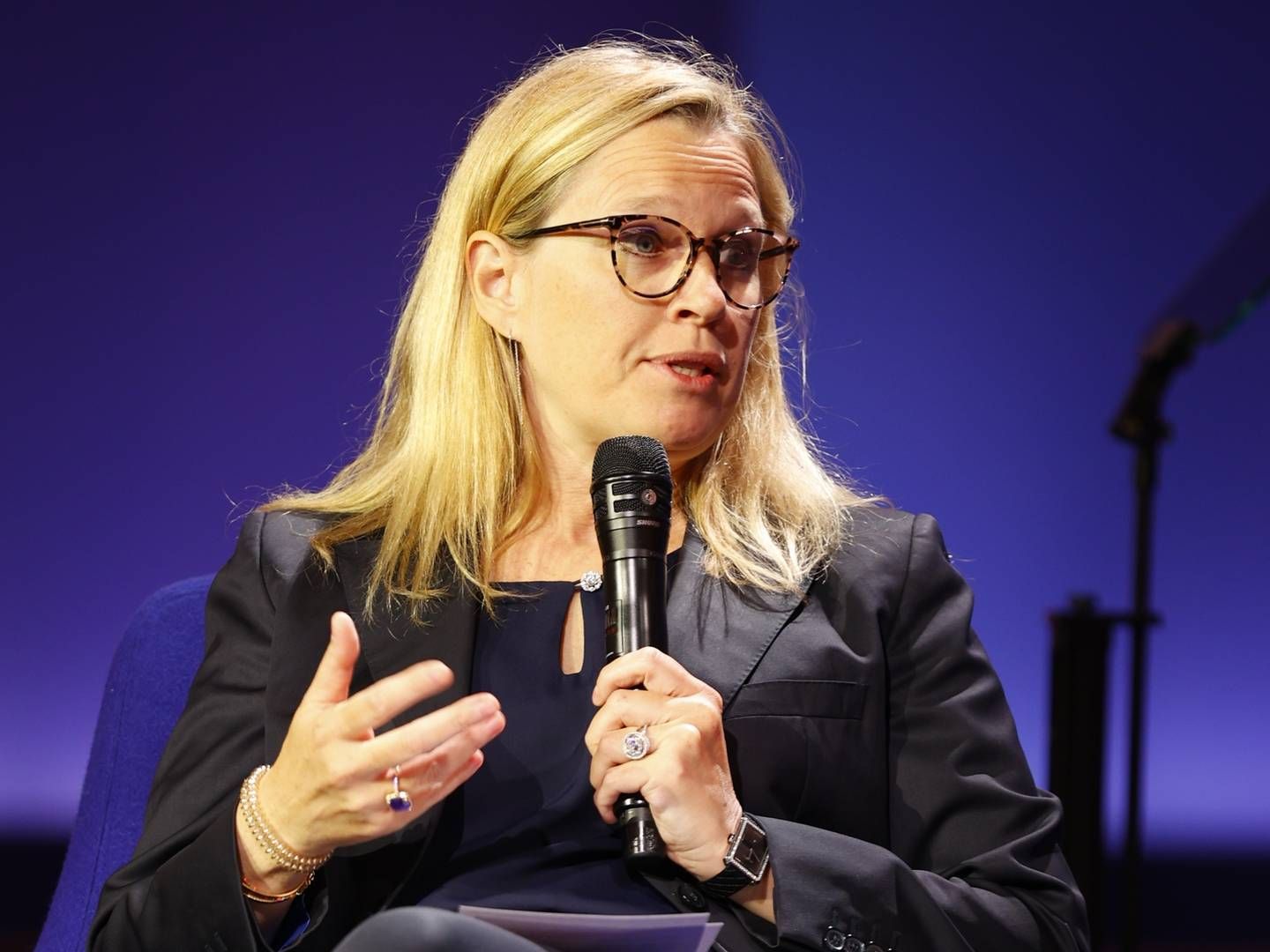Inflation concerns mount - but investment professionals find comfort in data and opportunities

Inflation. Inflation. Inflation.
Across the world, a generation of investment professionals are trying to navigate a period of high inflation, which is something some might have thought belonged in the history books, for the first time in their careers.
Even seasoned equity investors like Amundi’s Head of Equities Kasper Elmgreen, who started his career as a portfolio manager at Danish asset manager BankInvest in 2003, are getting nervous.
”The biggest uncertainty in the market is inflation, and even though higher inflation was expected, the data has continued to surprise us. Inflation requires a lot of humility from investors, because this is something most of them haven’t experienced in their professional career,” Elmgreen said to AMWatch at the Amundi World Investment Forum last month in Paris.
Higher inflation can squeeze corporate profits due to higher input costs. The equity risk premium is somewhat correlated to inflation and is more closely correlated to surprising inflation – because increasing inflation makes corporate profits more uncertain and central banks must tighten monetary policy to tame it.
“There is a generation that hasn’t experienced inflation, which is a factor in how the world works nowadays. I think that people that have lived through high inflation remain afraid of inflation for a long time, and this young generation is probably not afraid enough,” said Daniel Kahneman, professor emeritus of psychology, at a press session at the Amundi World Investment Forum.
Kahneman is known for winning the 2002 Nobel Prize in economics for of work on the psychology of judgment and decision-making.

Elmgreen echoes professor Kahneman’s sentiment.
“That’s spot on and absolutely correct. Inflation is like many other things in life – some is good but too much is very bad, and we have to note that nobody predicted that inflation would reach this level. The risk now is that the central banks have to hit the brakes very hard to tame it,” Elmgreen says.
The annual inflation rate in the US unexpectedly accelerated to 8.6% in May of 2022, the highest since December of 1981 and exceeding market forecasts of 8.3%.
US stocks have recorded their worst first half in more than 50 years after with the S&P 500 and Nasdaq down by 20.6% and 30%, respectively. Market observers ascribes this development by the Federal Reserve’s attempt to curb persistent inflation and exacerbated by gathering concerns over global growth.
Elmgreen notes that throughout the recent earnings seasons, companies highlighted that they were able to withstand the rising inflation.
“During the next earnings season, I will bet this will have changed. There is always a negative scenario, a positive scenario and all kinds of scenarios that are somewhere in between, but the spectrum of potential outcomes here is unusually broad, ” he says.
In an article with Bloomberg, Wall Street veteran and CIO Bob Michele at JP Morgan Asset Management says that the current environment is no doubt the most challenging in his career. When the same question is headed towards Danish Kasper Elmgreen, he answers:
”I would say the current environment is definitely one of the most uncertain we have experienced. When Covid-19 first arrived and lockdowns became a reality in early 2020 there was another moment of extreme uncertainty where nobody knew what we were facing. We saw a way forward in the end. This is one of the most uncertain times, as there are some factors which are really hard to take a position on,” Elmgreen says, and continues:
“The only comfort is that consumers and companies are in a strong financial position, so companies do not have as much debt as they did in previous crises. So although there might be a downturn, we may be better positioned to manage it.”
Although accelerating inflation has caused the cracks in financial markets to become veritable caverns, sound investment principles can help investors navigate it, according to Senior Researcher at Dimensional Fund Advisors (DFA) Mamdouh Medhat.
“Looking at research and empirical evidence, we know that inflation tends to be sticky and have some persistence, so it was really not surprising to see figures coming in relatively high after the initial spike. I think the important takeaway is what you can do about it as an investor, which ultimately depends on your goal,” Medhat says to AMWatch.
In 2015, Medhat obtained his PhD from Copenhagen Business School in 2015 for a project on corporate defaults and their influence on asset prices, and between 2015 and 2020, Medhat worked as a researcher at Cass Business School in London on topics such as asset pricing, before he embarked on the role at DFA.
Last year, the native Dane published the article Are Concerns About Inflation Inflated based on his research paper US Inflation and Global Asset Returns, where Medhat examines the relationship between US inflation and the performance of global asset classes from 1927 to 2020.
Since the 1990s, investors have been accustomed to slow and stable inflation and central banks aimed for a 2% level.
“But going all the way back in the US data to 1927, we have seen the US go through recessions and bear markets and periods with even double-digit inflation. Now, with the current high levels of inflation, is when it is important to take a long-term view,” Medhat says.
In his paper, he concludes that to outpace inflation, investors can construct asset allocations that emphasize assets with high expected real returns.
This can be done by taking on more market risk by adding more growth assets, although this risks taking some investors out of their comfort zones and risk budgets. For investors with greater sensitivity to inflation and lower risk tolerance, it might make sense to hedge against unexpectedly high inflation by investing in assets that move closely with it.
Inflation-indexed securities—such as Treasury Inflation-Protected Securities (TIPS) and inflation swaps— are natural candidates, but some have argued that commodities, real estate investment trusts (REITs), stocks in “inflation-sensitive” industries, and value stocks may also be a good hedge against inflation, writes Medhat and his co-author Wei Dai, who is Dimensional’s Head of Investment Research.
They conclude, however, that even the historically most inflation-sensitive alternatives—like commodities and energy stocks—have not been effective inflation hedges because they have been too volatile compared to inflation and most of this volatility is unrelated to inflation.
“You can either try and outpace inflation or hedge against it. Over the long-term, even when we have seen periods with high inflation, you still have growth assets like stocks and corporate bonds that outpace inflation,” he says.
Inflation has accelerated to reach a 40-year high since your paper was published. Does the recent development impact the conclusion?
“A single year of data is often not enough to change our minds about something like that - especially when you have almost 100 years’ worth of data in the original sample,” Medhat says.
Presented with the aforementioned quote from professor Kahneman Medhat says he understands the sentiment.
”In a world where you have a lot of uncertainty and volatility, with many markets down more than what we have seen in quite some time and you also have high inflation, it’s understandable to be jittery and ask yourself ‘should I take my money out of the stock market and risky assets?’ but what we rely on needs to be based on research and evidence,” Medhat says, and continues:
“The data suggests that simply staying invested helps outpace inflation over the long term.”
Potentially strong upside in parts of market
Instead, they assess the market from a fundamental bottom up perspective assessing risks and rewards – and through this assessment, parts of the market have started to become interesting.
“For me, it’s important to look at implied expectations which are very negative at the moment. We believe that some of the more cyclical areas of the stock market have started to price in more negativity than during previous recessions and have, therefore, started to look fairly attractive from a risk/reward perspective as downside is limited while there is strong upside potential if we manage to avoid a recession,” Elmgreen says and concludes:
”If we manage to get inflation under control, and if we overestimated the structural things which were actually more cyclical, then this is a fantastic opportunity to go long-risk. If the central banks are required to slam on the brakes hard, then there is a lot more trouble ahead.”
Amundi keeps 50% growth target intact despite turmoil
Related articles
Amundi keeps 50% growth target intact despite turmoil
For subscribers















